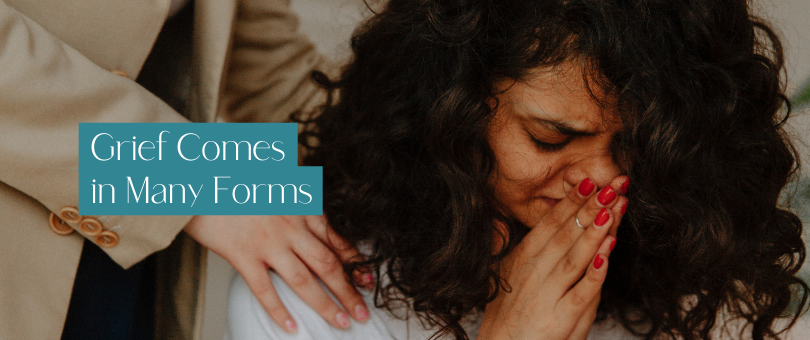While most people associate grief with the loss of a loved one who has died, it’s not the only cause. Grief can come in many forms and it affects every person differently.
Grief & Divorce
Going through a divorce may cause you to grieve for your once happy marriage. You may think fondly of the early days of your relationship and wish you could relive them. You might experience bouts of anger toward your spouse. You may be in denial, thinking you still have time to reason with your soon-to-be former spouse.
Besides grieving for your marriage, some people also grieve for the changes in their family life. You may see your kids less often than usual or you might be dealing with their messy emotions caused by the divorce.
Grief & Illness
If you were diagnosed with a serious illness, you’ll grieve for your loss of health. You may feel angry at the world or desperate to bargain with a higher power. Some people experiencing a serious illness go into denial and don’t want to follow a treatment plan. Grieving for your once healthy body is natural and your pain is understandable.
If you’re watching a loved one facing a serious illness, you may grieve for them. Maybe your young son loves playing sports and dreams of making it to the National Football League. Then you learn from his doctor that he has a muscle disease that will leave him wheelchair bound in a few years. Even though you haven’t been diagnosed with the illness, you grieve for him. You grieve for his dreams, for his health, for what this will mean for his future.
Grief & Trauma
Grief can also affect you when you’ve been through a trauma, like having your home robbed or surviving a sexual assault. It’s normal to deal with grief after a traumatic experience.
You might grieve because you’ve lost your sense of safety or you no longer feel the world is a ‘good’ place. You may blame yourself or question what you did to deserve this trauma.
Regardless of your loss, it’s important that you give yourself permission to grieve. If possible, reach out to a caring friend or family member to walk beside you during this time. If you don’t have anyone supportive in your life, reach out to a mentor you know or make an appointment with a counselor. You don’t have to walk this journey alone.
Don’t grieve alone. Download your free grief workbook for tools and resources to comfort you.




0 Comments